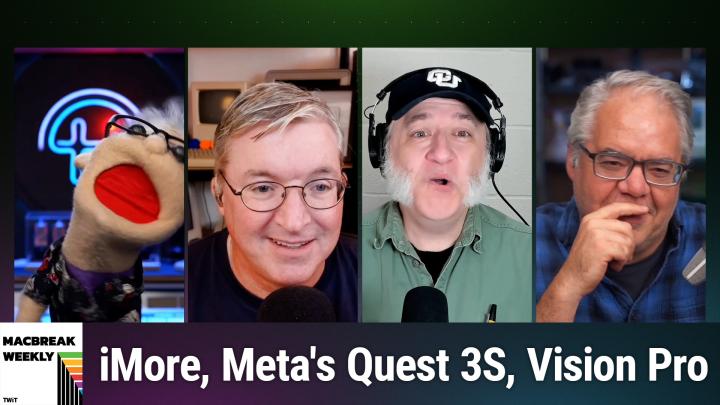Is Apple Losing Its Way With Its Vision Pro?
AI created, human edited.
The recent unveiling of Meta's Quest 3S headset has reignited discussions about Apple's strategy in the AR/VR space, particularly regarding its high-end Vision Pro. On a recent episode of MacBreak Weekly, hosts Leo Laporte, Andy Ihnatko, Alex Lindsay, and Jason Snell dissected Mark Gurman's critique of Apple's approach and debated the future of spatial computing.
Gurman's newsletter suggested that Apple has "lost its way" with the Vision Pro, pointing out that, unlike previous successful products like the iPhone and Apple Watch, it may require a complete overhaul to gain widespread adoption. The podcast panel largely agreed, with Andy Ihnatko stating, "It's hard for me not to declare this as a product failure. It doesn't suit any purpose. It doesn't scratch any itch."
Jason Snell offered a different perspective, suggesting that Apple's strategy might be more long-term: "I think that the reason that the Vision Pro exists is because Apple, like Meta, believes that there's an end game in the 2030s where there are glasses that are AR, glasses that you wear, that are very light and go on your face."
The discussion highlighted several key issues facing Apple:
- Content Development: Alex Lindsay emphasized the need for Apple to invest heavily in content creation to showcase the Vision Pro's capabilities. "If they just took a tenth of what they spent on the headset itself and spent it on content... building out content like everybody else does," Lindsay argued.
- Privacy Concerns: The panel noted that Apple's focus on privacy could be a significant advantage over competitors like Meta, especially as AR devices become more personal and data-intensive.
- AI Integration: Ming-Chi Kuo's prediction that future iterations of the Vision Pro will focus on AI capabilities was seen as a potential game-changer. Andy Ihnatko suggested that AI might be the "missing ingredient" that makes AR truly useful in everyday life.
- Product Positioning: The hosts debated whether Apple should have positioned the Vision Pro as a developer tool or tech preview rather than a consumer product, given its high price point and limited appeal.
As Meta continues to develop more affordable and consumer-friendly options like the Quest 3S and Ray-Ban smart glasses, Apple's strategy of starting at the high end remains contentious. Jason Snell explained the dilemma: "Apple isn't wired like that. Like Apple can't do it, they can only launch products, and so we get the Vision Pro."
The MacBreak Weekly discussion underscores the challenges and uncertainties in the evolving AR/VR landscape. As Apple and Meta continue to refine their approaches, the race toward the future of spatial computing remains wide open. Subscribe to support MacBreak Weekly today!
